DISCLAIMER (and you know it’s serious, since I don’t use all caps often): I am not a tax professional. What follows is meant only for “entertainment value.”
The topic of sales tax draws many varying views. Do you collect sales tax in your home state? Do you collect sales tax in any state in which you have “Nexus” which is defined as:
“Nexus, also called “sufficient physical presence” is a legal term that refers to the requirement for companies doing business in a state to collect and pay tax on sales in that state.” – From Intuit
Some argue that you have Nexus anywhere that Amazon stores your products–and that’s not just those Amazon Fulfillment Centers (FC) that you ship to, since Amazon moves inventory around.
I won’t go into the issue in much detail, except to offer what I do, which is collect, report, and pay sales tax in my home state.
Registering for Sales Tax
Every state is different, when it comes to registering to collect sales tax. TaxJar (This is an affiliate link, thank you in advance for your consideration) has a good tool for what State and Local Sales Tax is required.
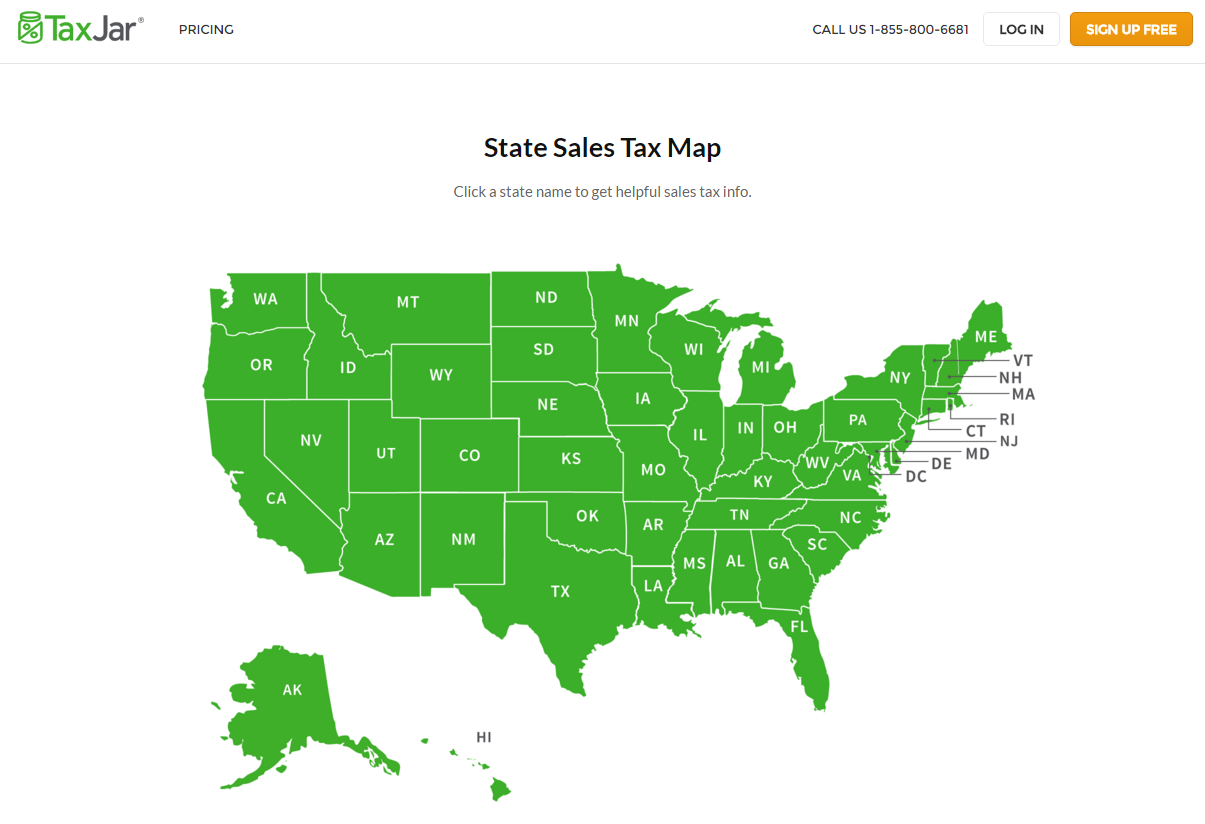
I will caveat that for my state, Maryland, the information is not 100% up to date, as the Amazon Fulfillment Center has been open for nearly a year.
Fulfillment by Amazon Tax Settings
You need to update your tax settings in order to start collecting sales tax on amazon.
Start off by going to Settings>Tax Settings
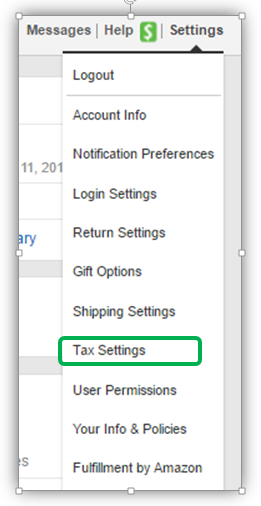
Then you’ll see this screen:

You’ll want to click “View/Edit your Tax Calculation Obligations and Shipping & Handling and Gift Wrap Settings.
Here you’ll get tons of instructions, putting them here for completeness:
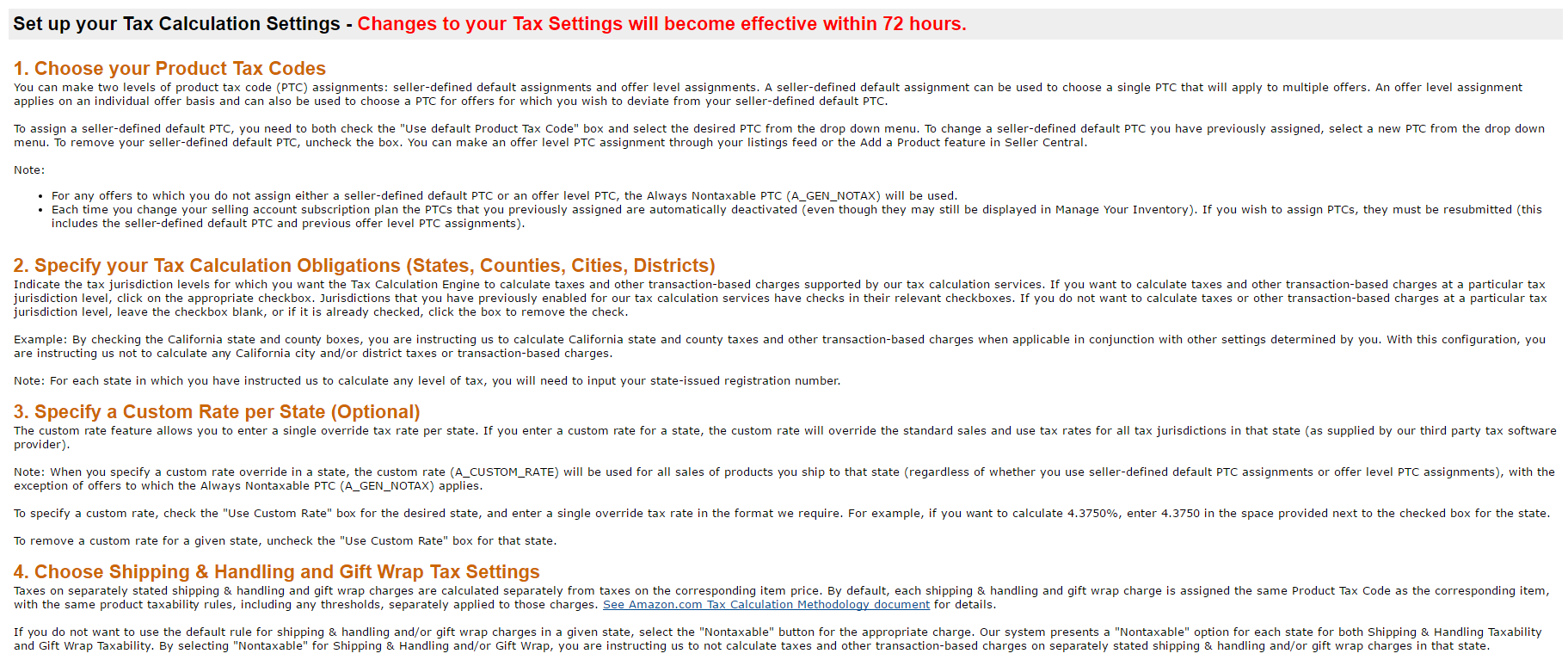
Scroll down and you’ll see where you can enter your state’s sales tax, as well as your State Registration number. They give you the choice to also calculate based on County, City and District. I understand some states, you need to do that in, but I am no expert. You can see here, I selected Maryland, and put in the 6% tax.
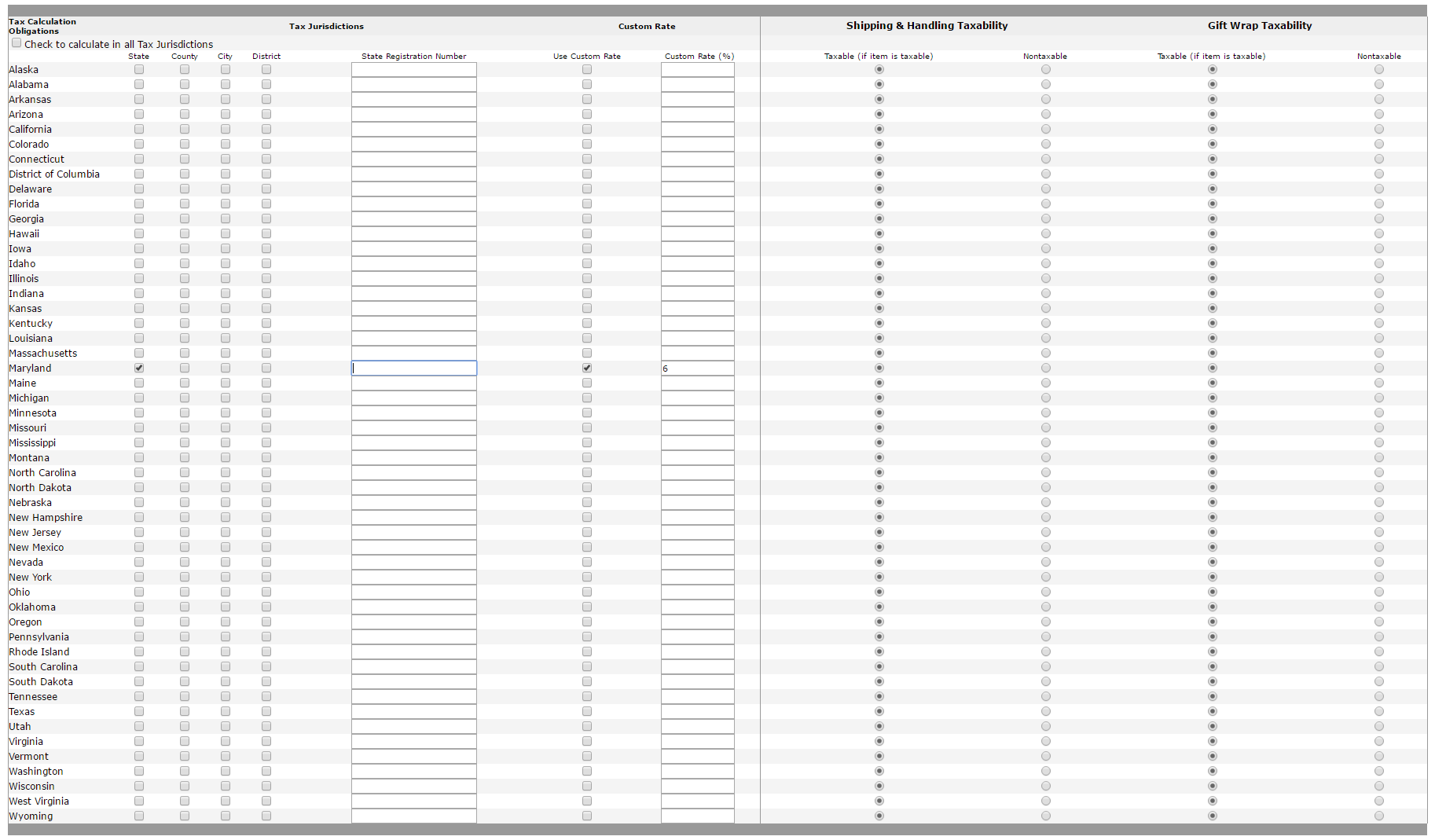
Make sure you hit the checkmark to acknowledge and agree that your state tax registration number(s) are correct.

You’ll get the same screen as before, but this time, stating “Confirm everything is correct”, then you will get a second confirmation for Tax Calculation Services Set Up.
Then you’ll get a confirmation:

Monthly / Quarterly Reporting
States vary in the frequency of reporting. All said, you jump to your tax area by going to Reports and select “Tax Document Library”
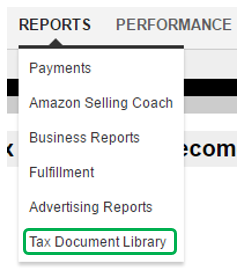
Then you’ll see this screen (with more or less reports)

If you don’t see what you’re looking for, you’ll want to click the “Generate a tax report” (highlighted above). You’ll get the chance to select the time frame of the report you are looking for:
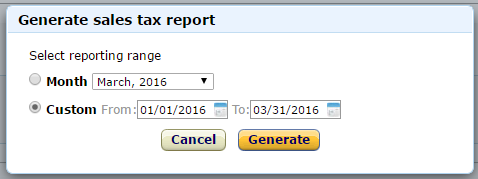
When you do load the report, it will identify those transactions that are taxable. From that you can determine what taxes you need to pay to the State.
Conclusion
Again, I won’t advocate of a particular approach to collecting sales tax. But, if you do decide to do so, I hope the tools I have provided, are sufficient to empower you to do so. If there is one thing I hope from this post, it is for continued conversation. So please, share your opinion in the comments.
Thanks Trevor for the post. I am going to fwd this article to my CPA so he can advice me how to move fwd. According to him, if you use ur house as a warehouse or for inventory purpose, you have to collect sales tax. This is one area I never thought abt before getting into reselling.
I am doing close to $20k per month and haven’t set up my LLC yet.
Is there’s going to be any issues if I set up LLC now and start collecting state tax? I am just concerned that I messed up big time by not taking taxes seriously.
Fun topic for Tax day. One key thing to point out is that you need to select the tax code for each item you enter into AZ. So even though you’ve turned on tax following instructions above, by default Amazon still does NOT collect tax until you select a tax collecting tax code. I know I missed that step when i first set it up!
@SourcingSimplifiers – Thanks for that – The Seller Forums are a mix on that, some say if you accept the Default on the tax settings screen, then you’re set, others say, better safe than sorry.
Yea I may have screwed up a step somewhere or they could have fixed that issue. Just know at first it wasn’t collecting until I set the tax code at the product level.
Many approaches you can take, but your home state Sales tax auditor would say, it doesn’t matter that you aren’t setup as an LLC or haven’t collecting taxes, just send me what you owe us and we are good. Even with $20K in sales/month the sales in your home state is probably not that much and paying taxes on just that state shouldn’t be too painful and will keep you out of trouble.
Or just get it setup ASAP and pay going forward. Obviously, this approach has greater risk for penalties and trouble, but will be the cheaper approach.
^^^^Meant to be a reply to Singh
Thanks for the advice. When I buy online/instore I pay sales tax and than sell without charging sales tax. If I start charging sales tax, isn’t that goin to be a double taxation? Is double taxation is fine or what steps I should take to avoid it?
I believe most states allow you to deduct for sales tax paid so you may not owe anything and would just need to file. However, you are costing yourself money by paying sales tax as its increasing your costs. To avoid paying Sales Tax, there are two approaches I take. Get your biz legit and get yourself a resellers certification that exempts you from paying sales tax. Now places like Target and Kohls that aren’t reseller friendly I wouldn’t use it, but a places like Wal-mart, Sears, Kmart take it no problem.
Second approach is if you are doing OA, send your stuff to a tax free prep center. Then you won’t get taxed on your buy, but instead you’ll be paying someone $1-$1.50 an item to prep and ship your item. Depending on your states sales tax and your average buy price this can actually save you money (it does for me). Also it saves you TIME which gives you more time to source to buy more stuff.
FWIW, I have, to date, sold ZERO items in my home state. So, with, at this point, about $5k in monthly sales and growing, I’m OK.
I would not, unless tax law even springs into existence from ONE settled case in the matter, start collecting and submitting tax for other states. MY warehouse is my house, much to the chagrin, on occasion, of Husband. Using a third party seller, such as Amazon, does not change that fact.